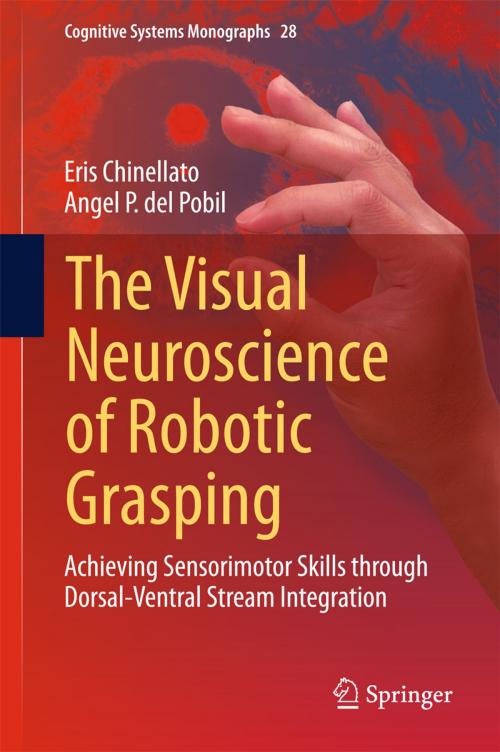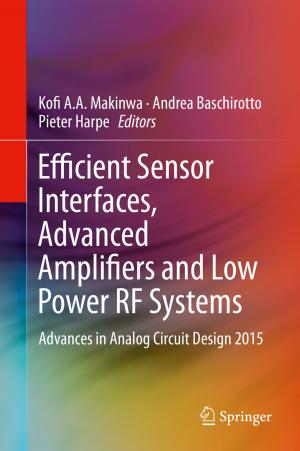The Visual Neuroscience of Robotic Grasping
Achieving Sensorimotor Skills through Dorsal-Ventral Stream Integration
Nonfiction, Science & Nature, Technology, Robotics, Computers, Advanced Computing, Artificial Intelligence| Author: | Eris Chinellato, Angel P. del Pobil | ISBN: | 9783319203034 |
| Publisher: | Springer International Publishing | Publication: | June 19, 2015 |
| Imprint: | Springer | Language: | English |
| Author: | Eris Chinellato, Angel P. del Pobil |
| ISBN: | 9783319203034 |
| Publisher: | Springer International Publishing |
| Publication: | June 19, 2015 |
| Imprint: | Springer |
| Language: | English |
This book presents interdisciplinary research that pursues the mutual enrichment of neuroscience and robotics. Building on experimental work, and on the wealth of literature regarding the two cortical pathways of visual processing - the dorsal and ventral streams - we define and implement, computationally and on a real robot, a functional model of the brain areas involved in vision-based grasping actions.
Grasping in robotics is largely an unsolved problem, and we show how the bio-inspired approach is successful in dealing with some fundamental issues of the task. Our robotic system can safely perform grasping actions on different unmodeled objects, denoting especially reliable visual and visuomotor skills.
The computational model and the robotic experiments help in validating theories on the mechanisms employed by the brain areas more directly involved in grasping actions. This book offers new insights and research hypotheses regarding such mechanisms, especially for what concerns the interaction between the dorsal and ventral streams. Moreover, it helps in establishing a common research framework for neuroscientists and roboticists regarding research on brain functions.
This book presents interdisciplinary research that pursues the mutual enrichment of neuroscience and robotics. Building on experimental work, and on the wealth of literature regarding the two cortical pathways of visual processing - the dorsal and ventral streams - we define and implement, computationally and on a real robot, a functional model of the brain areas involved in vision-based grasping actions.
Grasping in robotics is largely an unsolved problem, and we show how the bio-inspired approach is successful in dealing with some fundamental issues of the task. Our robotic system can safely perform grasping actions on different unmodeled objects, denoting especially reliable visual and visuomotor skills.
The computational model and the robotic experiments help in validating theories on the mechanisms employed by the brain areas more directly involved in grasping actions. This book offers new insights and research hypotheses regarding such mechanisms, especially for what concerns the interaction between the dorsal and ventral streams. Moreover, it helps in establishing a common research framework for neuroscientists and roboticists regarding research on brain functions.















